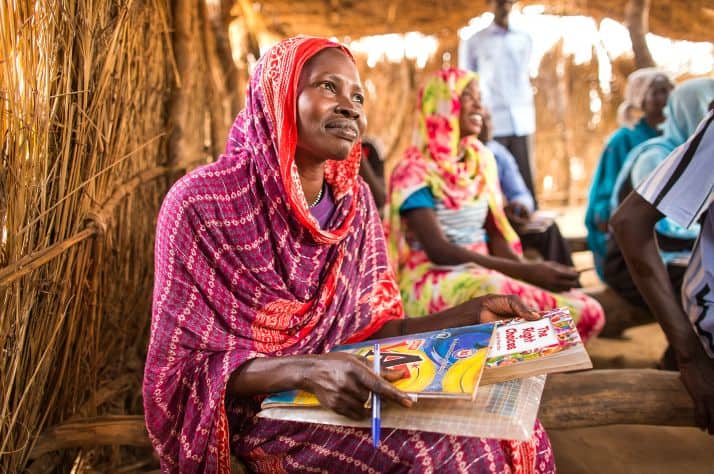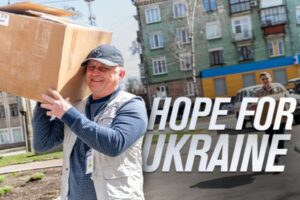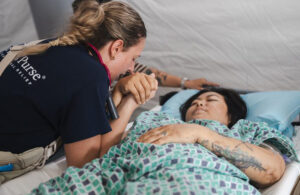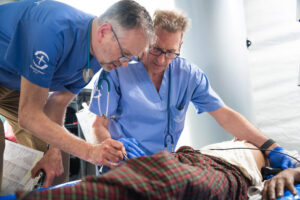A pastor's family cares for those fleeing economic crisis—offering food, shelter, backpacks, and the hope of the Gospel.
Each day, tens of thousands of Venezuelan migrants cross the Simon Bolivar Bridge into Cucuta, Colombia. Many of them have no plans to return home; instead they’ve chosen to flee their nation’s economic collapse and take their chances on starting a new life in a new country.
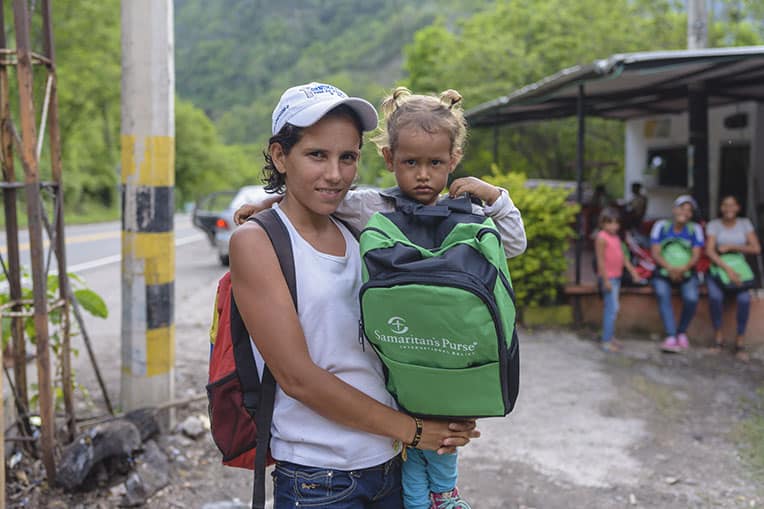
One place they’re sure to find a smiling welcome, though, is in the small town of La Don Juana, about 18 miles outside of Cucuta, where Samaritan’s Purse operates a way station, or shelter. Close to 20,000 migrants passed through our facility in October and November.
One was 27-year-old Jorge from Valencia City in Venezuela. “I left because we had nothing to eat,” he said.
He bid farewell to his wife and two children, hoping to reunite with his brother and sister in Lima, Peru—a journey of over 2,000 miles from Cucuta. He’s desperate to find work and send money back to support the family he left behind.
“The saddest thing is to hear from your kids—’Papa, I’m hungry’—and you have nothing to give them,” he said.
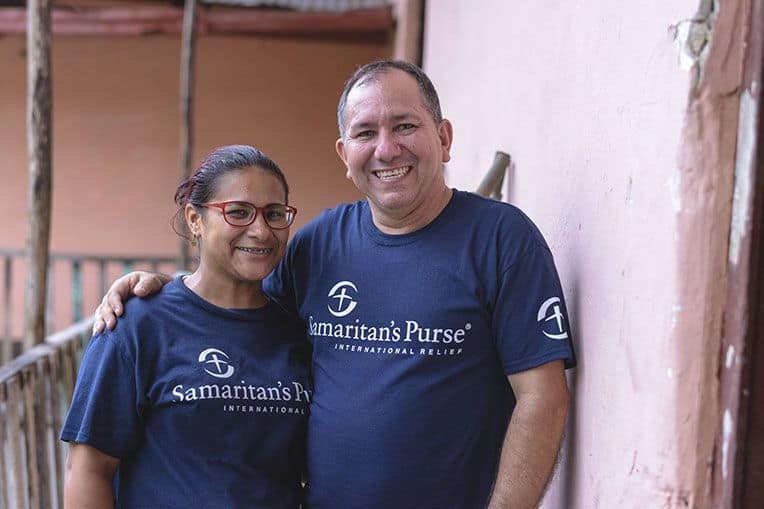
A few migrants simply stop at the way station for a brief rest out of the sun, quickly moving on to their next destination. Others may take a shower, eat a hot meal (or two), and spend the night in the building, which once served as a train stop. Nearly 5,000 migrants have also received backpacks filled by Samaritan’s Purse with important items including toilet paper, a toothbrush, toothpaste, soap, hand wipes, a hat, gloves, socks, water bottle, and poncho. Women receive additional hygiene items as well.
“The saddest thing is to hear from your kids—’Papa, I’m hungry’—and you have nothing to give them.”
The hats and gloves may seem a bit much for an equatorial country, but if travelers continue on after La Don Juana, they’ve got a steep climb. The next major town is several thousand feet higher, and the road eventually tops off at about 11,000 feet above sea level. It gets cold at night, and the walkers are provided helpful counsel to go along with the warm clothing.
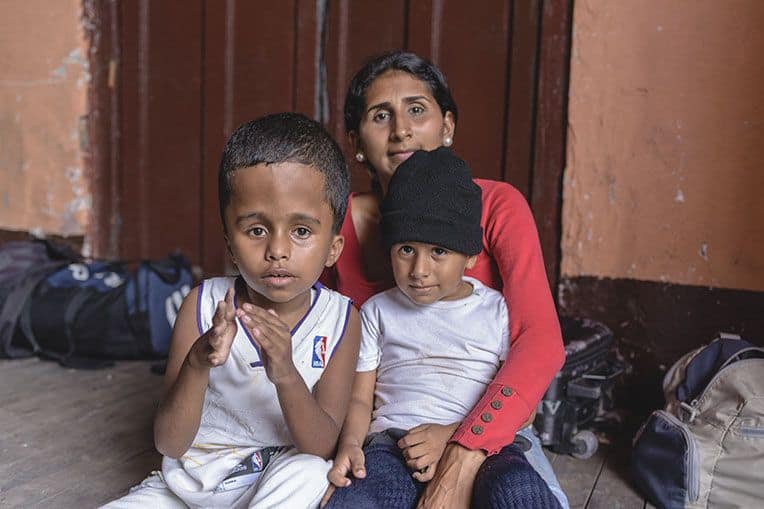
“I’m very thankful because they gave me food, and I could rest under a roof,” said Nelson, 22. He stopped by our shelter in October and was among the first to receive a backpack. He described the situation in his hometown of Falcon, Venezuela, as terrible—with no food and no work—so he’s headed to find relatives in Peru or work along the way.
The migrants are quick to help Viviana with meals or unloading supplies and grateful for the kindness. One group of six walkers, a mix of men and women, left a note on the kitchen wall that said, “We thank you on behalf of the Venezuelan people for the hand that you’re lending day-after-day to Venezuelan immigrants. We don’t walk alone, God is ahead of us.”
“Let’s Do Something”
The flood of those leaving Venezuela in the past couple years has become the largest migration crisis in recent Latin American history. Young men and women, sometimes with small children, leave because of the dire lack of food and medicine. Due to hyperinflation, a full month’s salary can now only buy a few food items, hardly enough to sustain a family. Hospitals don’t even have adequate supplies.
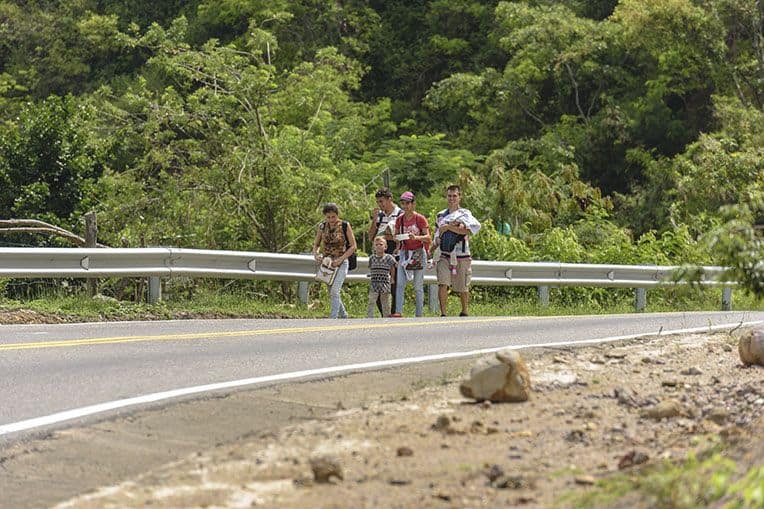
“We don’t have medicine, the healthcare system doesn’t work. We can’t find meat or rice,” Nazareth said. “The reason I left is because it’s not a good life for my children.”
Earlier this year, Pastor Jesus began noticing more and more Venezuelans stopping in his area as they made their way across Colombia.
“I was driving up and down every day with my family. At night we saw people sleeping in the road—50 people or so,” he said. “We saw the kids and families in the rain. So, I decided, let’s do something about this.”
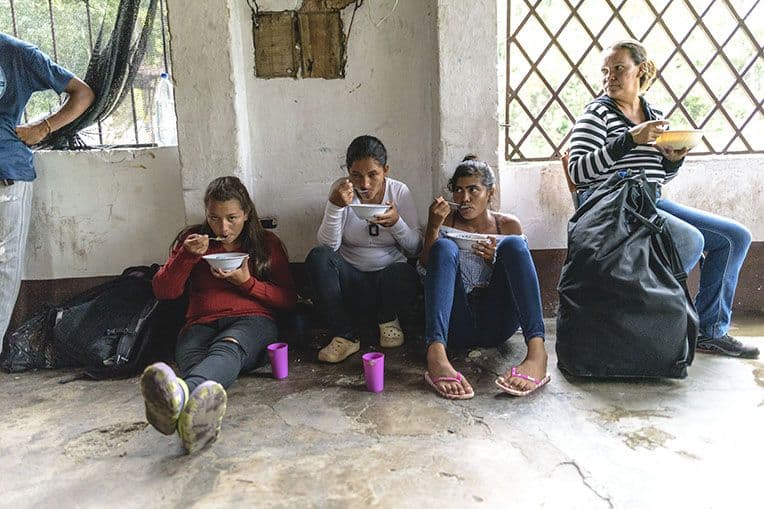
A friend offered Pastor Jesus the opportunity to use an old train station as a shelter. The location provides ample space for meal service and sleeping quarters. His daughter, Viviana, went to work serving daily meals and hosting migrants alongside her father.
This fall, Samaritan’s Purse came alongside Viviana to begin improving the facility, underwriting the rent, and purchasing the groceries. Since that time, we’ve also installed new toilets and showers, repaired the roof, and upgraded the kitchen and electrical system. An electro-chlorinator now provides clean water for visitors.
“Thank you for being a part of this vision,” Pastor Jesus says of the ongoing partnership and support from Samaritan’s Purse. “I feel a huge relief now that you’re involved. I came really close to saying, ‘We’re closing.’”
People often ask him how the shelter continues to operate, and he said many assume it’s government-funded. But he’s ready with a different answer. “We are very pleased to tell them the help is from God’s people.”
—
Read more about our work in Colombia at “Franklin Graham Travels to Colombia to Support Work with Venezuelan Migrants.”


